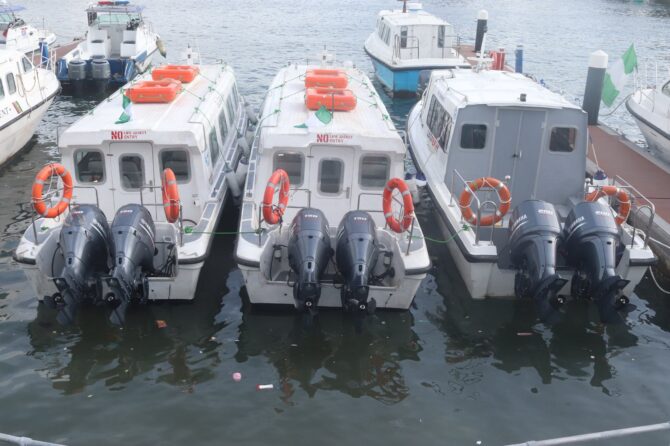In recent years, agrotourism has emerged as an enticing avenue for investors seeking unique and sustainable opportunities. This dynamic sector marries agriculture with tourism, offering visitors an immersive experience in the world of farming and rural life.
Agrotourism ventures encompass a wide range of activities, from fruit-picking on orchards to hands-on workshops in cheese-making. As the global appetite for authentic, eco-conscious travel experiences continues to grow, so does the potential for agrotourism as a lucrative investment.
This guide aims to provide a comprehensive overview of agrotourism as an investment vehicle. We’ll delve into the reasons behind its burgeoning popularity, the advantages it holds for investors, and crucial considerations to bear in mind before taking the plunge.
Whether you’re a seasoned investor looking to diversify your portfolio or a budding entrepreneur drawn to the charms of the countryside, this guide will equip you with the knowledge needed to navigate the world of agrotourism investments.
Section 2: The Growing Demand for Agritourism
As the world becomes more interconnected, travellers are increasingly seeking authentic, immersive experiences that connect them with local cultures and environments. This shift in preferences has given rise to the popularity of sustainable and eco-friendly forms of tourism, with agrotourism at the forefront.
2.1 Trends in Sustainable and Eco-Friendly Tourism
Agrotourism aligns perfectly with the growing trend towards sustainable travel. Visitors are drawn to the opportunity to engage with nature, support local economies, and reduce their ecological footprint. This trend is not confined to any particular demographic; it spans across generations, attracting everyone from families seeking educational experiences to millennials and Gen Z travellers in search of Instagram-worthy, off-the-beaten-path adventures.
2.2 Consumer Interest in Farm-to-Table Experiences
One of the most compelling aspects of agrotourism is the emphasis on farm-to-table experiences. In an era where consumers are increasingly conscious of the origins of their food, the opportunity to pick fresh produce or participate in the cheese-making process is a powerful draw. This hands-on engagement fosters a deeper appreciation for agriculture and reinforces the importance of sustainable food systems.
2.3 Case Studies of Successful Agritourism Ventures
Across the globe, agrotourism ventures have proven to be not only profitable but also highly rewarding for both investors and local communities. From vineyard tours in Napa Valley to agritourism bed-and-breakfasts in Tuscany, success stories abound. These ventures showcase the versatility and potential profitability of agrotourism, making it an attractive prospect for investors looking for a unique and rewarding investment opportunity.
The growing demand for agrotourism is not just a passing trend, but a fundamental shift in the way people approach travel and leisure. As investors, recognizing and capitalising on this trend can lead to not only financial success but also a positive impact on local communities and the environment.
Section 3: Benefits of Investing in Agrotourism
Investing in agrotourism offers a range of benefits that make it an attractive option for savvy investors seeking both financial returns and a positive societal impact.
3.1 Diversification of Investment Portfolio
Agrotourism provides a unique opportunity for diversification. Unlike traditional investments like stocks or bonds, agrotourism ventures are tied to the tangible assets of land and agriculture. This diversification can act as a hedge against market volatility and economic downturns, providing stability and potentially higher returns in the long run.
3.2 Positive Impact on Local Communities and Economies
Beyond financial gains, agrotourism investments have a substantial positive impact on local communities. They create jobs, stimulate local economies, and often lead to the development of complementary businesses such as local markets, restaurants, and artisanal products. Additionally, by supporting sustainable agricultural practices, agrotourism contributes to the preservation of rural landscapes and cultural heritage.
3.3 Potential for Long-term Growth and Returns
While initial investments in agrotourism may require patience and strategic planning, the potential for long-term growth and returns is significant. As the demand for authentic, nature-based experiences continues to rise, well-managed agrotourism ventures can establish themselves as go-to destinations, ensuring a steady stream of visitors year after year.
Furthermore, as consumers become more conscious of the environmental impact of their choices, agrotourism ventures that prioritise sustainability and responsible practices are likely to be rewarded with loyal and repeat customers.
Investing in agrotourism is not only a financially sound decision but also an opportunity to contribute to the sustainable development of rural areas and promote responsible tourism practices.
Section 4: Key Considerations for Agrotourism Investments
Before diving into the world of agrotourism investments, there are several crucial considerations that investors should carefully evaluate.
4.1 Location and Accessibility
Choosing the right location is paramount in the success of an agritourism venture. Accessibility, proximity to urban centres or tourist hubs, and local attractions are all critical factors. Additionally, a picturesque setting and natural beauty can enhance the overall visitor experience.
4.2 Types of Agricultural Activities to Offer
The range of activities you choose to offer will define the unique appeal of your agrotourism venture. Consider a mix of hands-on experiences like fruit-picking, animal interactions, and workshops related to farming or artisanal crafts. Tailoring your offerings to suit different preferences and age groups can broaden your potential customer base.
4.3 Regulatory and Zoning Requirements
Navigating the regulatory landscape is essential for the smooth operation of any agritourism business. Familiarise yourself with local zoning laws, agricultural regulations, and any permits or licences required for specific activities or amenities you plan to offer. Ensuring compliance from the outset will save time and resources in the long run.
4.4 Marketing and Branding Strategies
Effectively marketing your agrotourism venture is vital to attract visitors. Consider building a strong online presence through a website and engaging with potential customers on social media platforms. Additionally, creating a unique brand identity that reflects the essence of your agrotourism experience can set you apart in a competitive market.
By carefully considering these key factors, investors can lay a solid foundation for a successful agritourism venture that appeals to a broad audience and complies with local regulations.
Section 5: Financial Aspects of Agrotourism Investments
Understanding the financial aspects of agrotourism investments is crucial for making informed decisions and ensuring the sustainability of your venture.
5.1 Initial Capital Requirements
Starting an agritourism venture involves various initial expenses, including land acquisition or lease, infrastructure development (such as accommodations, facilities, and amenities), and marketing efforts. It’s essential to create a comprehensive budget that accounts for these expenses to avoid financial setbacks later on.
5.2 Revenue Streams
Agrotourism ventures offer diverse revenue streams, which can include:
– Accommodation fees (if providing lodging)
– Tour and workshop fees
– Sales of farm produce or artisanal products
– Food and beverage services (if applicable)
– Merchandise sales (branded items, local crafts, etc.)
Understanding and optimising these revenue streams will help ensure a steady income for your agrotourism venture.
5.3 Operating Costs and Profit Margins
Managing operating costs is vital for maintaining profitability. These costs may include labour, maintenance, utilities, marketing, and other overhead expenses. Calculating profit margins and closely monitoring expenses will allow you to make informed decisions about pricing, resource allocation, and potential areas for cost-saving measures.
Furthermore, it’s important to have contingency plans in place to address unexpected expenses or seasonal fluctuations in revenue.
Investors should conduct a thorough financial analysis and create realistic projections to gain a clear understanding of the potential returns and challenges associated with their agrotourism venture.
Section 6: Mitigating Risks in Agrotourism Investment

While agrotourism can be a rewarding venture, it’s essential to be aware of potential risks and have strategies in place to mitigate them.
6.1 Market Research and Feasibility Studies
Thorough market research and feasibility studies are critical before embarking on an agritourism investment. This involves assessing the demand for agrotourism in your chosen location, understanding the preferences of your target audience, and studying the competitive landscape. A well-informed understanding of the market will help you make informed decisions and set realistic expectations.
6.2 Contingency Planning for Seasonal Fluctuations
Agritourism businesses often experience seasonal fluctuations in visitor numbers. It’s essential to have a solid contingency plan to navigate periods of lower demand. This might involve offering seasonal promotions, diversifying your offerings, or exploring additional revenue streams that can help offset any dips in income.
6.3 Insurance and Liability Considerations
Having adequate insurance coverage is crucial to protect your agrotourism venture from unexpected events. This may include liability insurance in case of accidents or injuries, property insurance to cover damage or loss of assets, and specialised agritourism insurance policies tailored to your specific activities.
Additionally, implementing safety measures and providing clear guidelines for visitors can help minimise the risk of accidents or incidents.
By proactively addressing potential risks, you’ll be better prepared to navigate challenges and ensure the long-term success and sustainability of your agrotourism investment.
Section 7: Sustainability and Responsible Practices
In the realm of agrotourism, embracing sustainability and responsible practices isn’t just a trend, it’s a fundamental aspect of creating a successful and enduring venture.
7.1 Importance of Sustainable Farming and Hospitality Practices
Sustainable farming practices are at the core of agrotourism. Employing eco-friendly techniques, such as organic farming, permaculture, and water conservation, not only preserves the environment but also enhances the quality of the visitor experience. Additionally, adopting sustainable hospitality practices, such as energy-efficient operations and waste reduction, demonstrates a commitment to responsible business operations.
7.2 Building a Green and Environmentally-Friendly Business
Incorporating green initiatives into your agrotourism venture can yield both environmental and financial benefits. This may include the use of renewable energy sources, implementing recycling programs, and minimising waste. Educating visitors about your eco-conscious efforts can also enhance their experience and foster a sense of shared responsibility for the environment.
By prioritising sustainability and responsible practices, you not only contribute to the greater good but also appeal to a growing segment of conscious consumers who actively seek out businesses with a positive environmental impact.
Section 8: Tips for Starting an Agritourism Venture
Embarking on an agritourism venture requires careful planning and execution. Here are some valuable tips to help you get started on the right foot:
8.1 Building Strong Relationships with Local Farmers and Suppliers
Establishing solid relationships with local farmers and suppliers can be a game-changer for your agrotourism venture. Collaborations can lead to a diverse range of offerings, from fresh produce to unique experiences like cheese-making workshops or vineyard tours. Additionally, sourcing locally supports the community and emphasises the authentic, local aspect of your venture.
8.2 Creating Unique and Memorable Experiences for Visitors
Setting your agrotourism venture apart involves offering experiences that visitors won’t find elsewhere. Consider hosting themed events, incorporating interactive activities, or providing educational workshops that cater to the interests and desires of your target audience. These distinctive experiences will leave a lasting impression on your visitors and encourage them to return.
8.3 Leveraging Technology for Marketing and Operations
Utilising technology is essential in today’s competitive landscape. This includes having an informative and user-friendly website, leveraging social media platforms for marketing and engagement, and employing booking systems or reservation platforms to streamline operations. Embracing technology not only enhances your visibility but also facilitates a seamless experience for your visitors.
By implementing these tips, you’ll be well-equipped to create an agrotourism venture that stands out in the market and offers a memorable, valuable experience to your visitors.
Conclusion
As you’ve journeyed through this guide, it’s clear that agrotourism is more than just an investment opportunity; it’s a gateway to a fulfilling and sustainable venture. The combination of agriculture and tourism offers a unique experience that resonates with a growing number of travellers seeking authenticity and connection with nature.
Investing in agrotourism not only diversifies your portfolio but also contributes to the vitality of local communities and the preservation of rural landscapes. The potential for long-term growth is significant, particularly as the demand for sustainable and eco-conscious travel experiences continues to rise.
Remember, success in agrotourism hinges on careful planning, a commitment to sustainability, and a dedication to providing exceptional experiences for your visitors. By embracing these principles, you not only embark on a profitable investment journey but also play a role in shaping a more sustainable and enriching future for travellers and communities alike.
As you move forward, continue to stay informed about industry trends, adapt to the changing needs of your audience, and foster a deep appreciation for the intersection of agriculture and tourism. With dedication and a forward-thinking approach, your agrotourism venture has the potential to flourish and leave a positive mark on both the environment and the lives of those it touches.












